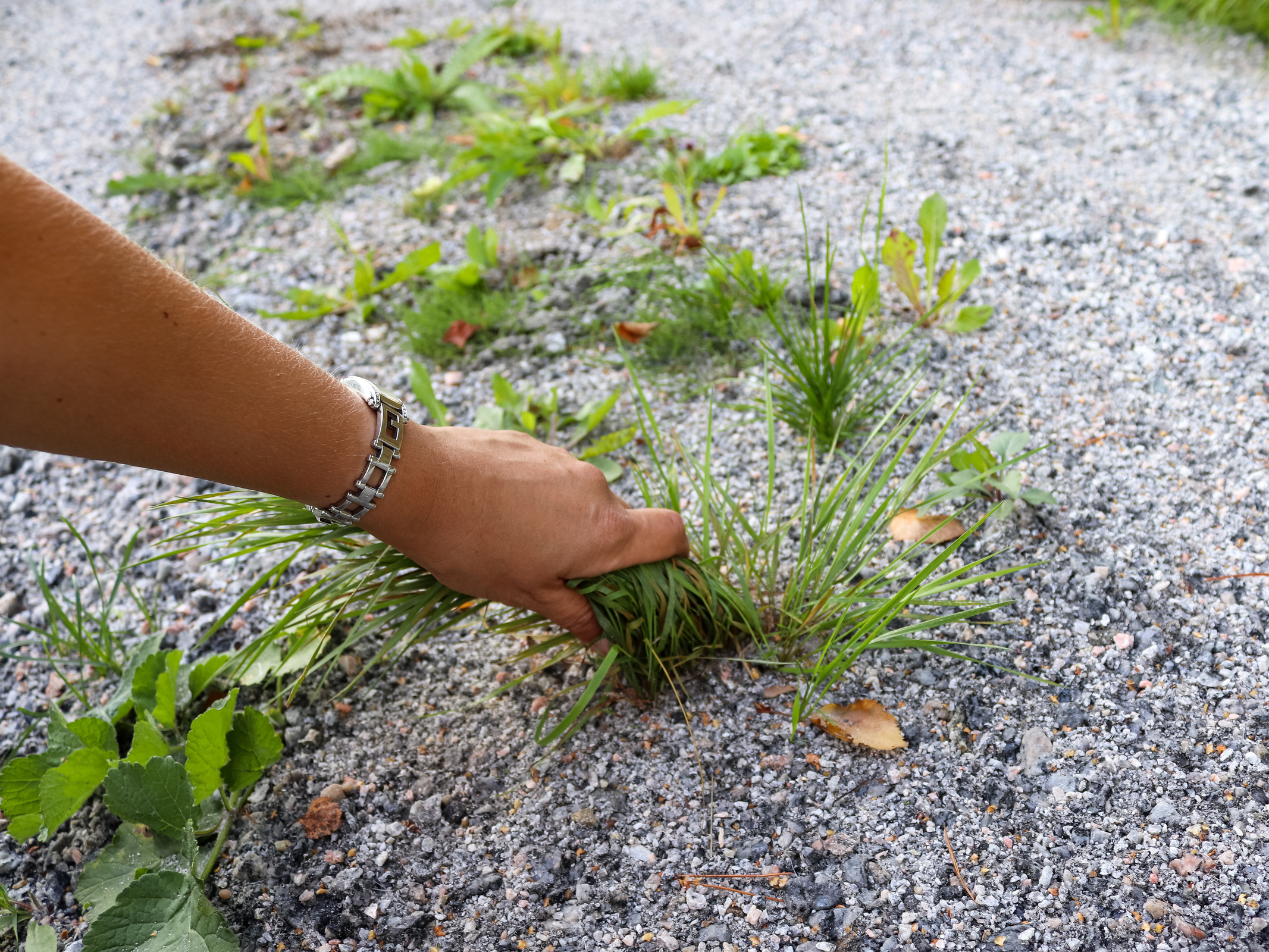Unwanted grass growing up through your gravel can give the appearance of being poorly maintained or unkempt. The best way to prevent grass from growing through your gravel is to remove it completely before laying it in the first place. But if the grass does sprout despite your best efforts at preparing the gravel bed, there are plenty of ways to get rid of it; That’s without using poisonous sprays that could be harmful or fatal to pets and children. Some of the most effective methods are detailed below.
Salt and Vinegar
While either ingredient works as an effective plant killer, they are often used together to double up on effectiveness. Salt kills plants by soaking up their water, so they dry up, and salt prevents plants from growing by absorbing all the moisture in the soil. Vinegar works on plants by stripping their protective layer and allowing them to dry out more quickly. When applied to the soil, vinegar lowers the pH to levels plants cannot grow.
Salt can be sprinkled by hand onto the areas of gravel where grass is growing through. Use a garden sprayer to apply the undiluted vinegar. Alternatively, you can mix the salt and vinegar together and apply the mixture with a spray bottle.
Boiling Water
Boiling water is excellent for killing grass in gravel since it permeates down and kills the whole root. The boiling water also kills any seeds in the soil beneath the gravel, so new grass will not be growing back any time soon. You can boil a pot or kettle of water and pour it by hand over the areas of your gravel that are showing grass.
Household Bleach and Rubbing Alcohol
Bleach is a common cleaning agent easy to find in the typical home. It can also be used to kill unwanted grass. When it is poured onto the soil, it soaks in and, much like vinegar, lowers the soil’s pH level to a point at which plants cannot absorb nutrients or grow. Bleach also sterilizes the soil, killing any microbes, both harmful and beneficial, and insects, in addition to any plants. Rubbing alcohol can be used in the same way if bleach is not available.
Propane Torch
A concentrated high-heat flame will wither and kill grass immediately without using any dangerous chemicals in the soil.
Pull It Up By Hand
Sometimes the most simple methods are the most effective. For small patches or sparse grass growth, you can pull it up by the roots and toss it to the side.
Tips and Warnings
Make sure to read all the tips and warnings before using the methods listed below to kill the grass in your gravel, as some have long-lasting effects.
- Kids and pets move quickly and have a tendency to be underfoot. When handling boiling water, bleach, or a propane torch, be absolutely certain that little ones will not be able to come into contact with dangerous substances. Anything that can kill a plant can seriously harm or kill other living things as well!
- You might have to apply these techniques multiple times to achieve a permanent result.
- If you choose to use salt, be aware that salting the earth will prevent grass and other plants from growing for up to several years. Be very careful when applying salt to any outdoor area, as the results are nearly impossible to reverse, aside from just hauling away all the soil and replacing it with new soil.
- Bleach and rubbing alcohol can sterilize the soil and kill any plants it comes into contact with, and you may not be able to grow any plants in soil that has been in contact with these chemicals for up to a year.
- Boiling water and vinegar, on the other hand, will kill grass and other plants, including their roots and seeds, but you will still be able to plant the treated soil after a few days if you choose to do so.
- Do not use a torch when there is a risk of starting a wildfire, such as during a drought or on large patches of dry grass.
- It’s best to use salt, vinegar, boiling water, bleach, and rubbing alcohol techniques on days when no rain is expected. Rain can dilute the liquids to make them less effective.
Now You Know How to Permanently Kill Grass in Gravel Driveway
Whichever method you choose to use, you should have grass-free gravel within just a few days. Enjoy the uniform and clean appearance of a well-maintained gravel driveway, path, or landscaping feature!

